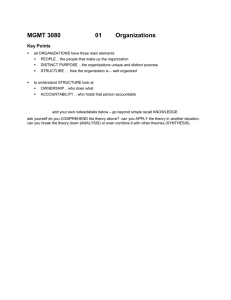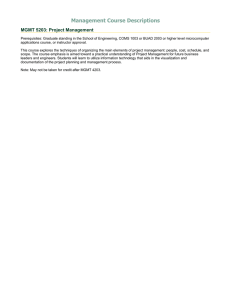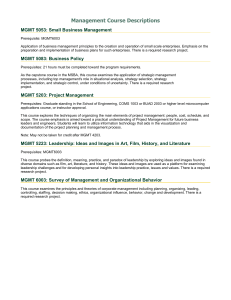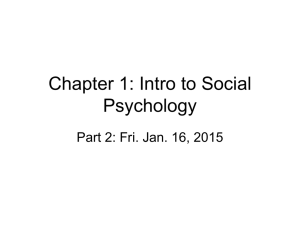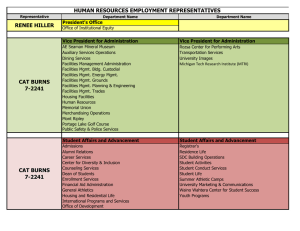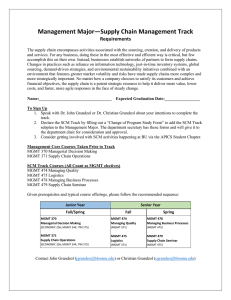Course Outline 2016 MGMT 300: Management in Dynamic Contexts (15 Points)
advertisement
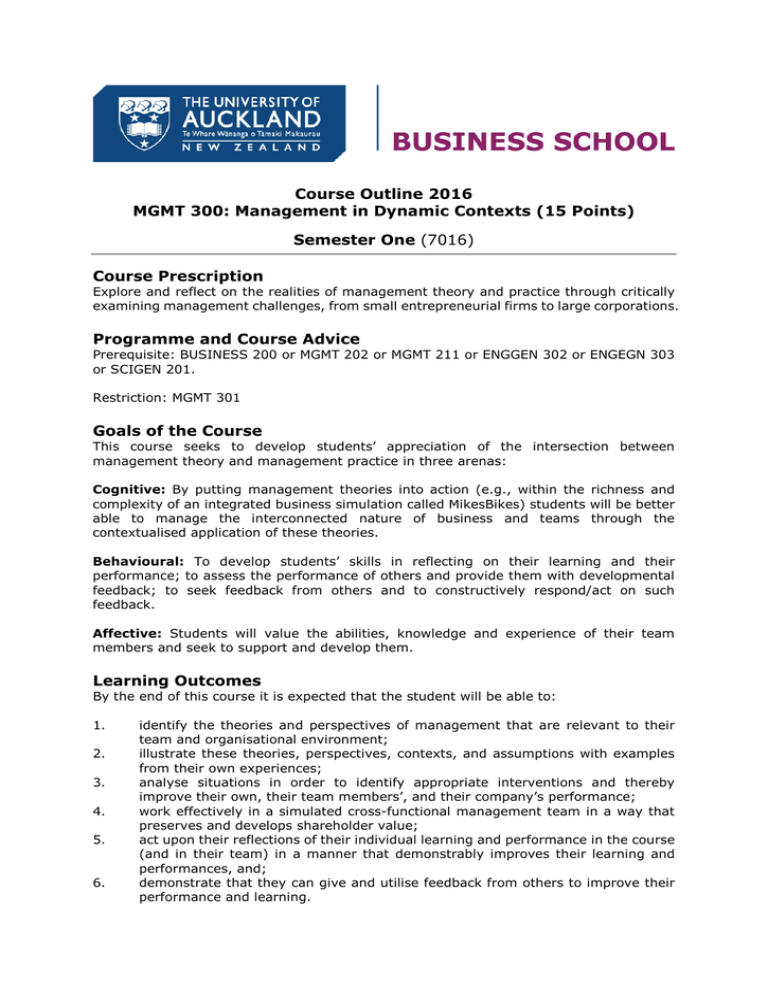
Course Outline 2016 MGMT 300: Management in Dynamic Contexts (15 Points) Semester One (7016) Course Prescription Explore and reflect on the realities of management theory and practice through critically examining management challenges, from small entrepreneurial firms to large corporations. Programme and Course Advice Prerequisite: BUSINESS 200 or MGMT 202 or MGMT 211 or ENGGEN 302 or ENGEGN 303 or SCIGEN 201. Restriction: MGMT 301 Goals of the Course This course seeks to develop students’ appreciation of the intersection between management theory and management practice in three arenas: Cognitive: By putting management theories into action (e.g., within the richness and complexity of an integrated business simulation called MikesBikes) students will be better able to manage the interconnected nature of business and teams through the contextualised application of these theories. Behavioural: To develop students’ skills in reflecting on their learning and their performance; to assess the performance of others and provide them with developmental feedback; to seek feedback from others and to constructively respond/act on such feedback. Affective: Students will value the abilities, knowledge and experience of their team members and seek to support and develop them. Learning Outcomes By the end of this course it is expected that the student will be able to: 1. 2. 3. 4. 5. 6. identify the theories and perspectives of management that are relevant to their team and organisational environment; illustrate these theories, perspectives, contexts, and assumptions with examples from their own experiences; analyse situations in order to identify appropriate interventions and thereby improve their own, their team members’, and their company’s performance; work effectively in a simulated cross-functional management team in a way that preserves and develops shareholder value; act upon their reflections of their individual learning and performance in the course (and in their team) in a manner that demonstrably improves their learning and performances, and; demonstrate that they can give and utilise feedback from others to improve their performance and learning. Content Outline In no • • • • • • • particular order, the major topics addressed are: Learning from experience The imperative for giving and receiving feedback Teams; their care and feeding Living as a leader and a follower Better decision making Is it really all about technical, human, and conceptual skills? Acting strategically Learning and Teaching • • • There are typically between 60 and 120 students in this course Students will be working in teams of four to six people. If you do not like or want to work in teams, this course is not for you. Teamwork is required both in class and outside of class. If you have a tight schedule that is going to make meeting with your team difficult, this course is not for you. Teaching Staff Course Director: Andrew Patterson Office: OGGB 490 Tel: 373-7599 (ext 84689) Email: andrew.patterson@auckland.ac.nz Learning Resources The purchase of a license to use MikesBikes is compulsory and costs $69.95. MikesBikes software download is available from http://www.students.smartsims.com Login: stuauckland Password: mgmt300 Assessment Assessment Type Approximate Learning Weighting Outcomes Learning portfolio Individual 80% All Firm performance Group 20% 1, 3, 4, 5 Note: a peer evaluation will be conducted in the final week of the course. This may be used to moderate/adjust each individual’s share of the group mark. Inclusive Learning Students are urged to discuss privately any impairment-related requirements face-toface and/or in written form with the course convenor/lecturer. Student Feedback Some students find that the way the course starts immediately in the first week challenging; metaphorically, the class hits the ground running. It is hard – if not impossible – to join the class late and expect anything than a steep learning curve (and a lot of catching up). Many students consider the major assignment, worth 80% of your final grade, daunting at the start of the course. However, by the end of the course, most students find it entirely manageable and reasonable. There has been a lot of discussion as to how this might be changed, but the current approach seems to be the most practical and useful. Feedback is sought from students in this course through class representatives, conversations with the course director and student evaluation.
